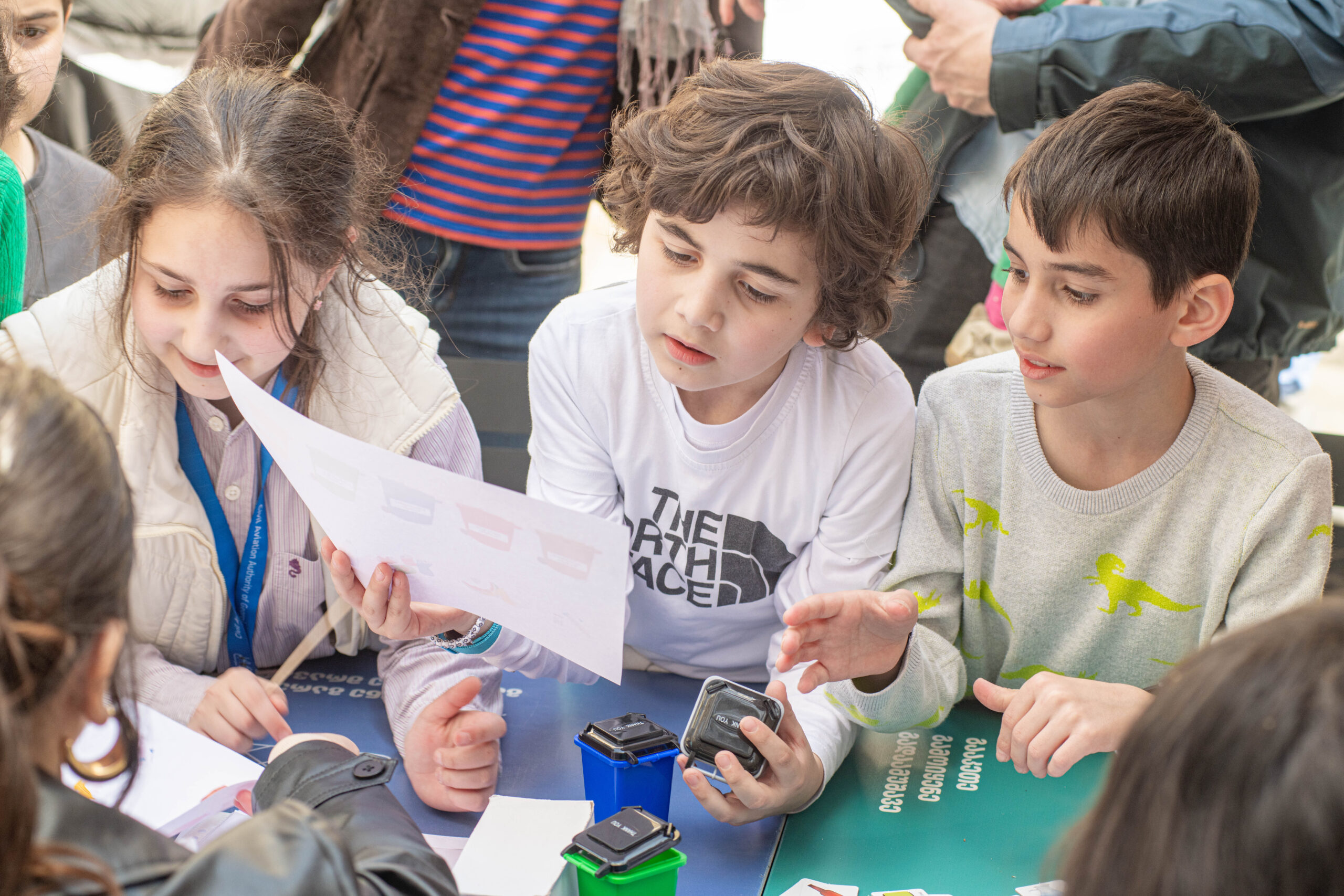Tbilisi’s Mziuri Park came alive on 30 March as hundreds of people gathered to celebrate the International Day of Zero Waste, marking a step towards a cleaner, greener, and healthier lifestyle in Georgia.
Organized by the Caucasus Environmental NGOs Network (CENN), in partnership with the Ministry of Environmental Protection and Agriculture, and supported by the European Union, Norway, and the United Nations Development Programme (UNDP), the day-long event drew guests, participants, and organizers alike to engage in interactive and educational activities promoting sustainable practices.
Highlights of the event included:
- Games and quizzes catering to both children and adults.
- Exchange corners facilitating the redistribution of clothes and books.
- Recycling and separation stations where local enterprises collected plastic and paper waste for recycling.
- A business fair showcasing environmental practices spearheaded by Georgian companies.
“The concept of zero waste involves recycling any type of waste and turning it into a new resource. Modern waste management practices have already been introduced through the Extended Producers’ Responsibility (EPR) on the following four waste streams: tires, batteries and accumulators, electrical and electronic equipment and oils. Throughout this process, increasing public awareness and their engagement plays an imporant role”- Stated Irma Gurguliani, Waste and Chemicals Management Department, Ministry of Environmental Protection and Agriculture of Georgia.
“We are excited to host the International Day of Zero Waste in Tbilisi as part of our ongoing ‘End Plastic Pollution’ campaign! The overwhelming response underscores public commitment to a cleaner environment,” said Nana Takvarelia, CENN Project Manager.
Lela Akiashvili, UNDP Project Manager, emphasized the need for a concerted effort to combat plastic pollution.
“We need a comprehensive approach involving national and local authorities, businesses, civil society, and experts. However, it all begins with people embracing the vision of a pollution-free world and uniting to safeguard their environmental rights.”
Background Information:
Humanity generates over 2 billion tonnes of municipal solid waste annually, with approximately 2.7 billion people lacking access to proper waste management. This waste crisis exacerbates climate change, biodiversity loss, and pollution, posing significant threats to human well-being and economic prosperity. Without swift action, municipal solid waste generation is projected to reach 3.8 billion tonnes by 2050. (Source: UN-Habitat. 2023)
In Georgia, plastic production and imports have surged by 71 percent over the past decade, resulting in widespread illegal dumpsites, particularly in rural areas. Plastic accounts for over 95 percent of litter accumulated on Georgia’s beaches. In 2020, up to 93 percent of produced and imported plastic items in Georgia ended up as waste contributing to environmental pollution. (Sources: World Bank. 2021. EU/UNDP EMBLAS Project)
In response, UNDP and Norway, in partnership with the Ministry of Environmental Protection and Agriculture and CENN, launched an initiative to promote robust policies, enhance coordination, and foster engagement towards a plastic-free Georgia, ensuring every citizen’s right to a clean and healthy environment.
Media Contacts:
- Sophie Tchitchinadze, UNDP, +995 599 196907, tchitchinadze@undp.org
- Elene Sakvarelidze, UNDP, +995 599 003944, sakvarelidze@undp.org
- Ana Petrishvili, CENN, petriashvili@cenn.org
